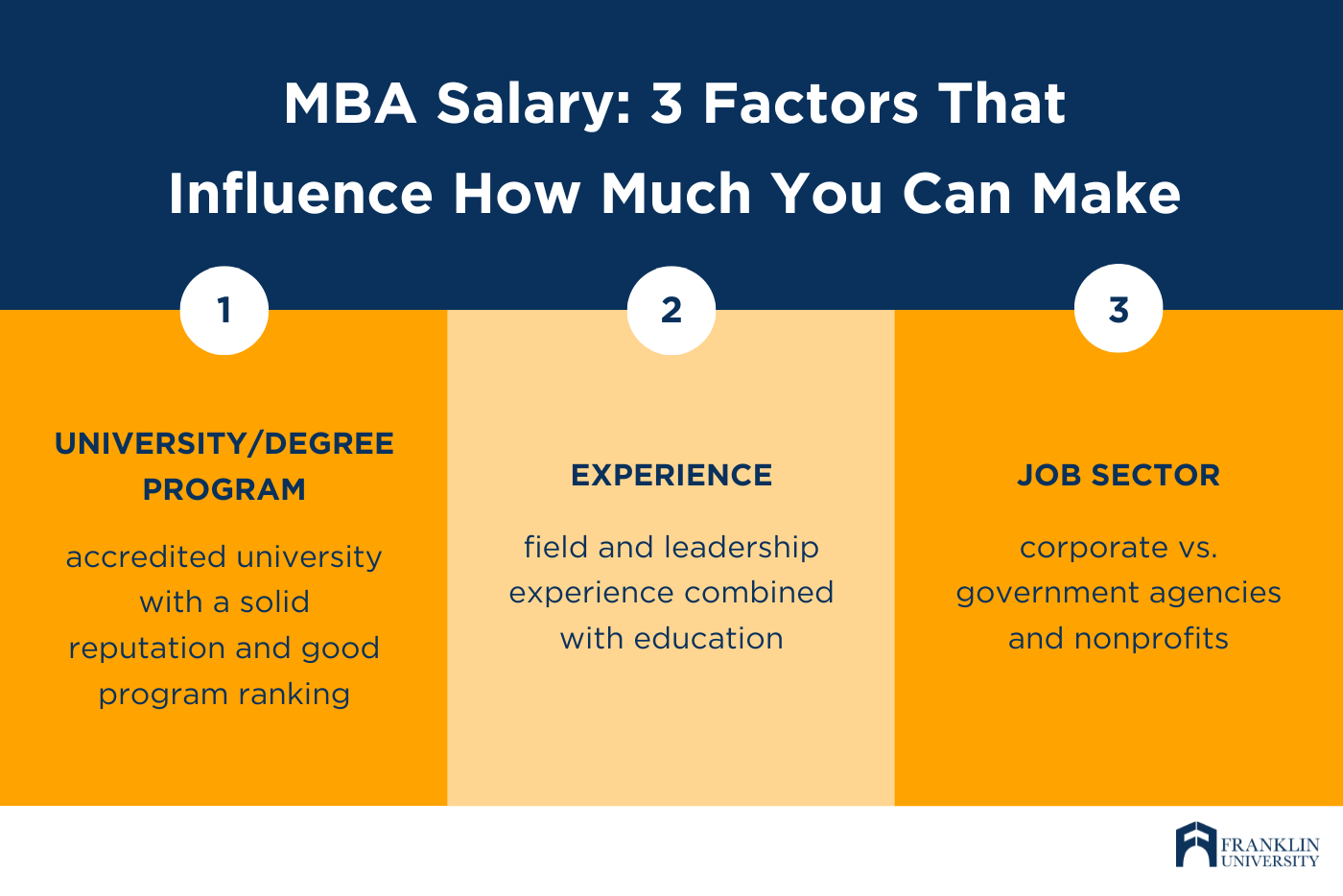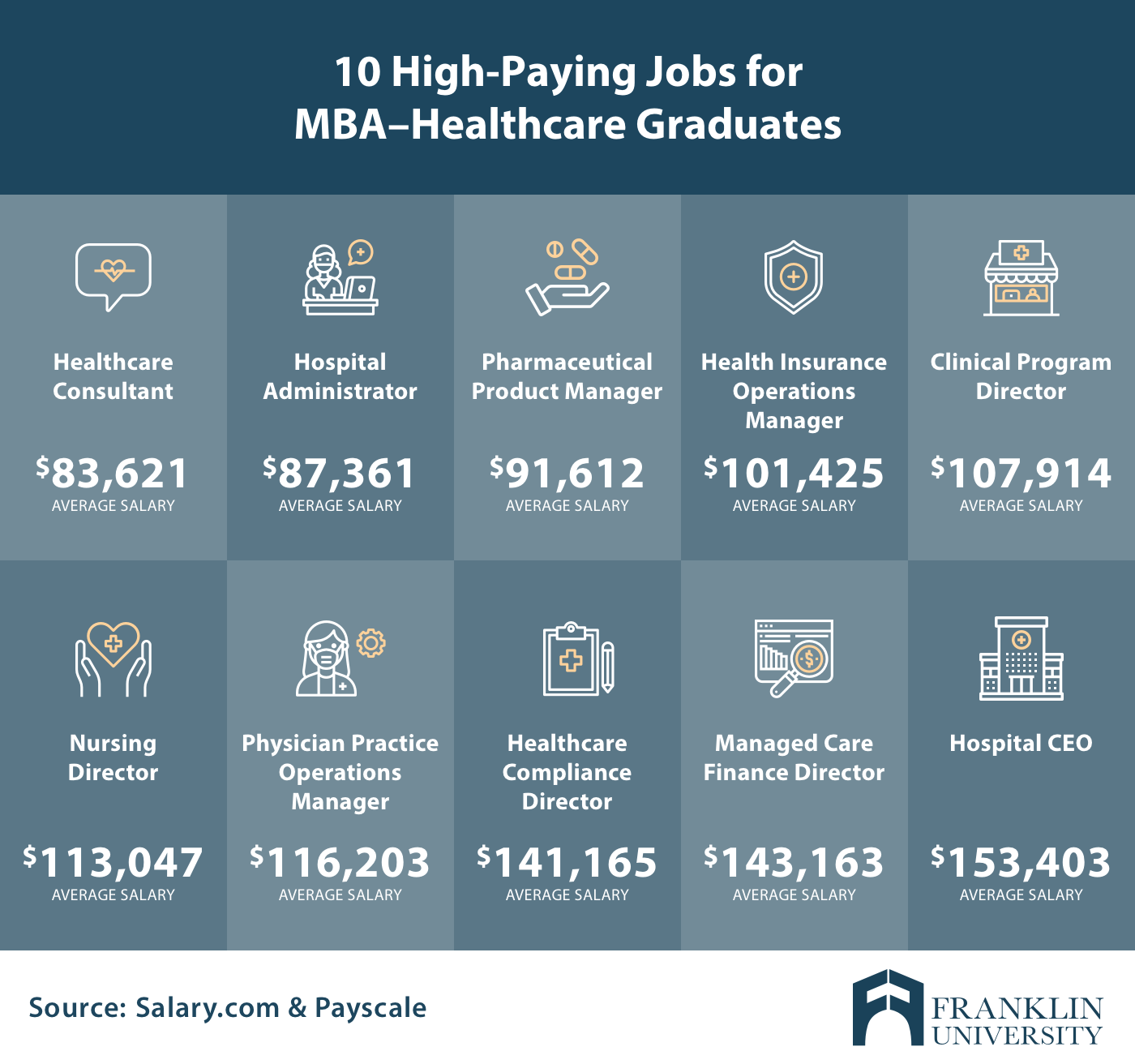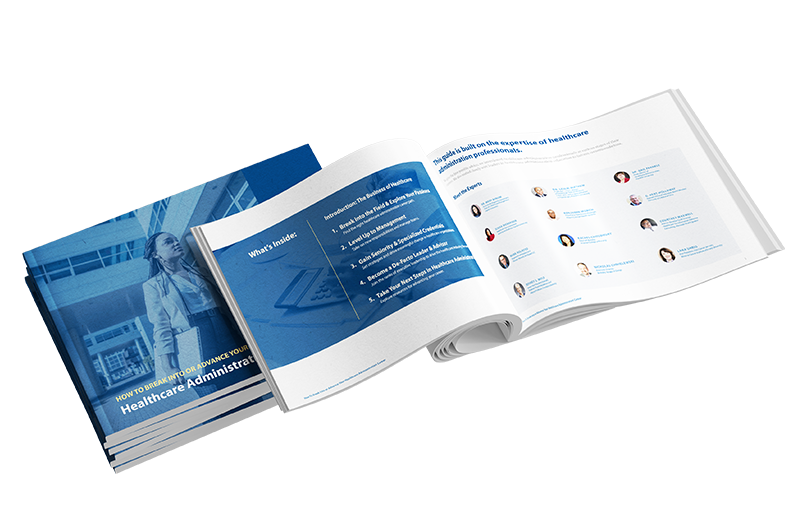Request Information
We're Sorry
There was an unexpected error with the form (your web browser was unable to retrieve some required data from our servers). This kind of error may occur if you have temporarily lost your internet connection. If you're able to verify that your internet connection is stable and the error persists, the Franklin University Help Desk is available to assist you at helpdesk@franklin.edu, 614.947.6682 (local), or 1.866.435.7006 (toll free).
Just a moment while we process your submission.

MBA in Healthcare Salary Expectations: How Much Can You Earn?
If you’ve heard it once, you’ve heard it a million times: The healthcare industry is desperate for qualified leaders.
But do you know why? It’s not because there aren’t good leaders–there are.
The challenge is that there aren’t enough qualified healthcare professionals to help manage the business side of things, including navigating complex regulatory, policy and operational structures.
While the demand for healthcare leaders remains high, so, too, do the expectations of those who are hiring. And that’s where an MBA in Healthcare comes in.
Healthcare Leadership: Do You Need an MBA?
While an MBA in Healthcare isn’t a requirement to be a good healthcare leader, it certainly can help. That’s because earning a healthcare MBA can help transform good leaders into great ones.
Not only is an MBA-Healthcare helpful for advancing your career, it can be personally rewarding, too. With an MBA in Healthcare you get the chance to have an impact on the lives of others, as well as your own. (Think improved job prospects and higher earnings potential.)
Advance your career in Healthcare Administration while you advance patient care. Download your free career guide.
What is an MBA in Healthcare?
An MBA with a healthcare specialization is an advanced, graduate-level degree that’s focused on the business side of medicine.
An online MBA-Healthcare degree program from a quality, accredited university can introduce you to executive-level management and business skills within the context of the healthcare setting.
You’ll complete the same core courses as a traditional MBA, such as economics, operations, finance, business strategy and leadership. More importantly, you’ll also complete specialized coursework related to healthcare administration.
You can expect an MBA-Healthcare degree program to help you:
- Better navigate healthcare policy and regulatory changes
- Swiftly adapt to and adopt advanced healthcare technologies
- Innovate in your approach to healthcare operations, financial management and patient care outcomes
- More effectively and efficiently enable delivery of quality care.
What Salary Can You Expect with an MBA in Healthcare?
Of the many good reasons to further your education, salary is one of the most important, if not at the top of the list. So, how much can you expect to earn with an MBA in healthcare?
For some, a six-figure salary is possible, depending on where you work and what your job title is.
For example, labor market analytics firm Lightcast reports that the median annual salary for medical and health services managers is $104,832. Lightcast also reports that top earners earn an average of $100.96 per hour or $209,997 annually.
These, of course, are averages that also include those with a bachelor’s or master’s degree other than an MBA in Healthcare. The point is, education pays, and the higher your level of education, the higher your potential salary.
How Much Can I Earn With an MBA? 3 Things That Can Make a Difference
How much you can expect to earn with an MBA in Healthcare depends on a number of factors, including the university and degree program, your experience, and the job sector in which you work.
1. University and Degree Program
Where you decide to go to school and which MBA-Healthcare degree program you choose has a big impact on your future earnings. While most employers don’t care if you earned an online degree or an on-campus one, employers do want to feel confident that you earned a high-quality degree from an accredited university with a solid reputation.
2. Experience
A long work history in the field or previous leadership experience combined with an MBA in Healthcare can help you move up the ladder more quickly. An MBA-Healthcare is designed to help you build the qualitative skills needed to guide the decisions behind the business of healthcare. There’s a high level of satisfaction among MBA graduates, too, who say that earning their degree helped them secure better paying and higher quality positions. Of course, an MBA doesn’t automatically guarantee career success and job promotions, but it can help you stand out among the competition.
3. Job Sector
The salary you can command working in a medical practice is likely to be quite different from what you can earn working in the C-suite at a large healthcare system. It’s not unusual for large employers in the corporate sector to pay more than government agencies and nonprofits.
10 High-Paying Jobs with MBA in Healthcare
Here are 10 top-paying careers for MBA-Healthcare grads:

Beyond Salary: 5 Reasons to Get an MBA in Healthcare
Of course salary is important, but there are other reasons besides money to earn your MBA in Healthcare. Here’s a look at five of them.
1. Job Outlook
A good salary is a good thing to have. And so are new opportunities in a growing industry. According to the BLS, job opportunities in healthcare are growing faster (13%) than the national average for all occupations (3%). Not only does the BLS expect about 2 million new healthcare-related jobs by 2031, they say there will be nearly 2 million openings each year as a result of growth and replacement needs, too.
2. Career Flexibility
Unlike a Master of Healthcare Administration (MHA), an MBA in Healthcare can afford you more flexibility in working across a wider variety of clinical and non-clinical settings. Your MBA-Healthcare can open lots of different employment opportunities still within a high-paying, healthcare-related field, such as health insurance, healthcare technology, or pharmaceuticals.
3. Networking Opportunities
An MBA-Healthcare program is a powerful way to make business connections. During your MBA in Healthcare program, you’ll expand your professional network as a result of your coursework and interactions with your instructors and classmates–including physicians, healthcare administrators, and others who can support you in taking your career to the next level.
4. Skill Enhancement
Your MBA in Healthcare can help you identify business opportunities through the lens of healthcare. Because you’re gaining practical, best-practice business skills, you’ll be prepared to lead the business side of a healthcare organization, or start your own business or medical practice.
Is an MBA in Healthcare Worth It?
The answer to “Is an MBA-Healthcare degree worth it?” is always the same: It depends on what’s important to you.
If an interesting career path, excellent salary, leadership development, and opportunities to effect change on our nation’s healthcare system is important to you, then, yes, an MBA in Healthcare is worth it.
Of course, only you can decide if a healthcare MBA is right for you right now.
If you decide to go for it, the good news is that if you pursue your MBA in Healthcare with a program designed for busy, working professionals, you can earn this important credential without putting your career on pause.





